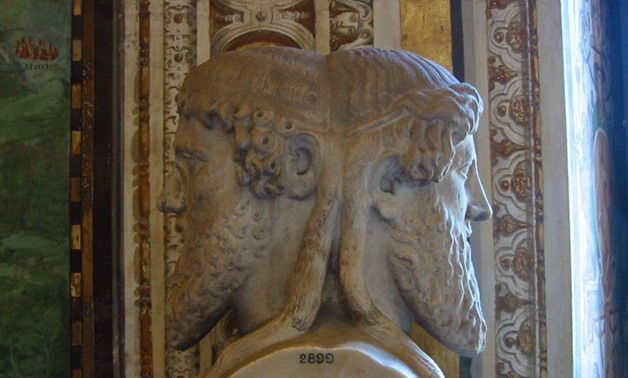
The double headed pagan Roman god “Mensis Ianuarius” - ET
CAIRO - 1 January 2020: The world have just entered in the year 2020. January, is the first month of the calendar year, but what is the meaning of the word "January" in ancient and contemporary cultures?
In ancient Rome, Romans called January “Mensis Ianuarius”. They derived the name from the name of their pagan lord "Ianuarius". He is the deity of the Roman gods and his name means the Lord of lords. Additional meanings of his name is “The Entry” or the “Gateway”, which refers to entering a new year.
Furthermore, the ancient Romans believed that the god Ianus Ianuarius is the god of beginnings and endings. The pagan deity with a double head was believed to control the farming year and the fertility of the lands. He has two heads because he sees the future and the past according to Roman religions.
The ancient Romans held celebrations for him, presenting tributes, offering food and abstaining from cultivating and plowing the land for the first 12 days of January, then returning to work on the 13th.
The Romans spread their beliefs in their colonies. These celebrations were inherited in the Roman colonized lands, including the Principality of Numidia in North Africa (eastern Algeria). The inhabitants of the Roman colonies practiced the same rituals, whether in Spain or North Africa.
Furthermore, the people of Saxony named Ianuarius the “Wolf Month”, while Charles the Great named it the “Winter Month”. In the Japanese calendar it is called Mutsuki. In Finnish, it is called “Tamiko month”, which means oak month.
Comments
Leave a Comment